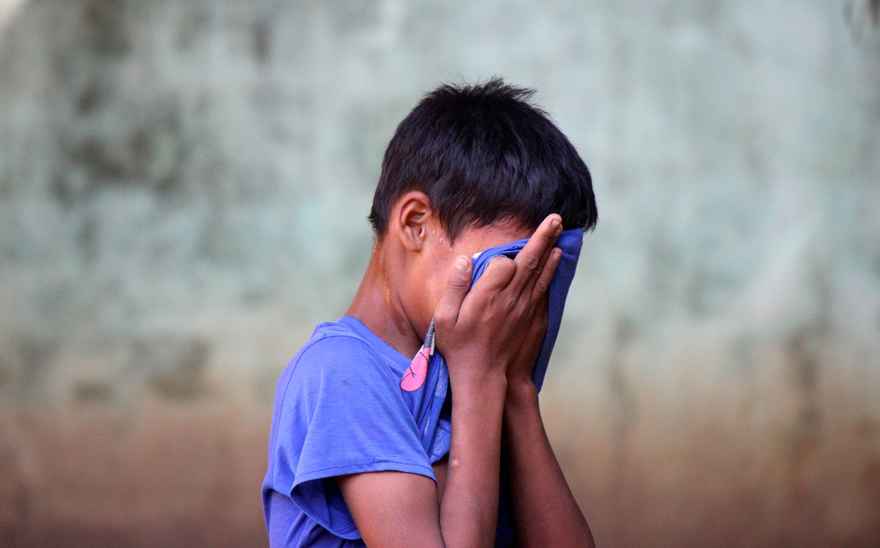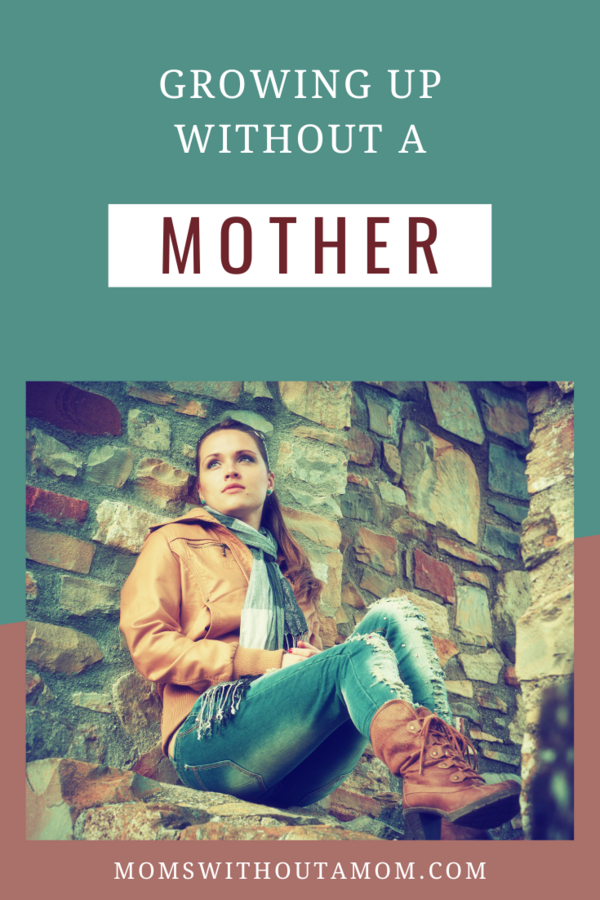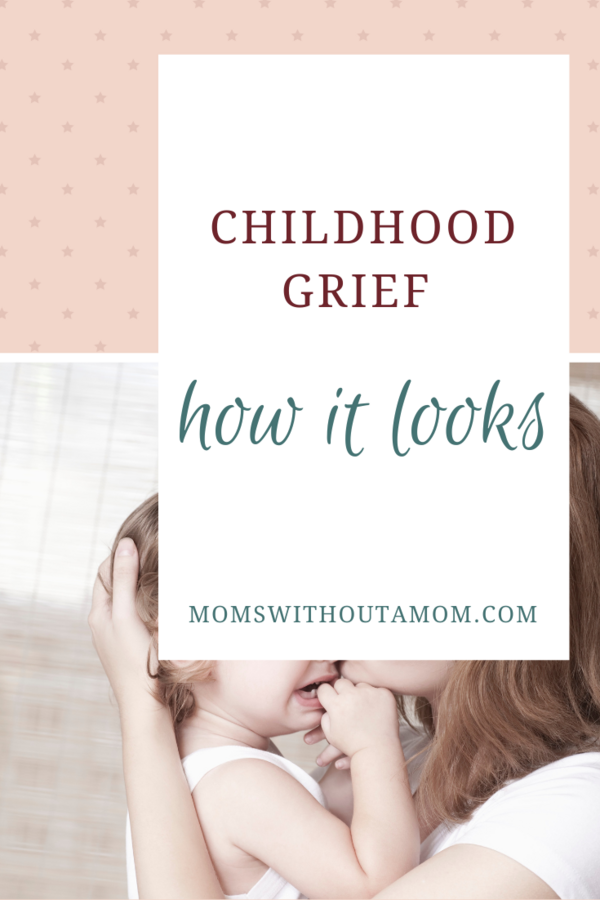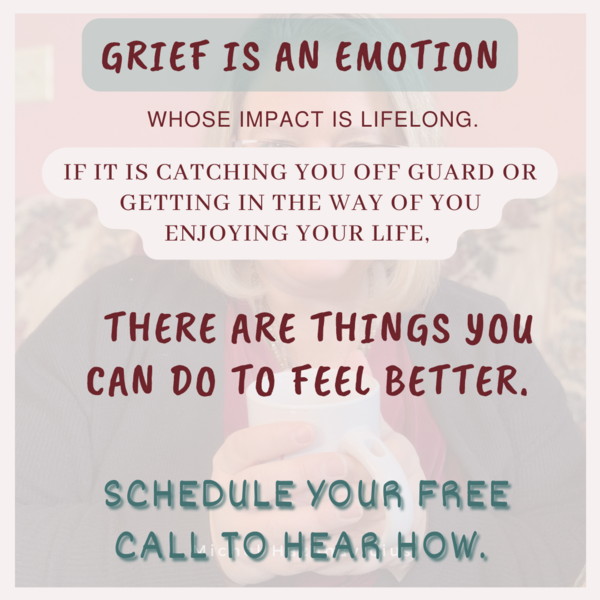Worst Age to Lose a Parent; What You Need to Know about Children's Grief

Worst age to lose a parent; what you need to know about children's grief
I am often asked if there is a worst age to lose a parent, especially a mother. Losing a loved one early in life can look different than losing someone later in life. Unfortunately, there are many myths about grief in childhood. Society as a whole tends to minimize the impact of loss on children. Unfortunately, there are many myths about grief in childhood. However, grief looks very different in children than it does in adulthood. Regrettably, many believe that if a child doesn’t cry or talk about it, they aren’t being impacted by it in the same way that adults are, and therefore grief for a child must not be as big a deal. This belief is patently false.
Everyone experiences grief, but most adults don’t understand how different grief is for children or how the impact of grief on children can be lifelong. I can’t tell you how often I’ve heard comments like, “Good thing she is so little; she won’t remember it.” Or, “At least the little one won’t suffer as much; she’s too little to understand what is going on.” Unfortunately, both of these statements are wrong. Just because a child isn’t old enough to speak doesn’t mean they aren’t old enough to sense the distress around them and to feel the loss of someone who had previously interacted with them.
Growing up Without Mother

Although uncommon, about 3.5% of children under 18 experience the death of a parent (Christ, 2010). Grief is experienced differently by children based on their age and developmental stage. The long-term effects of loss are also impacted by the time the child loses their mother. It is a myth that young children aren’t affected by loss simply because they don’t remember it or don’t talk much about it.
There is nothing more unsettling to a child than the loss of a parent. Our very survival depends on being taken care of, provided for, and nurtured. As an infant, one doesn’t even yet recognize that the parent is a separate being. Infants aren’t yet able to distinguish that mom isn’t just another part of their body like an additional arm. As a baby grows, their ability to recognize separateness also grows, but toddlers and young children don’t know that others think and feel differently. Toddlers and young children also view the world as if they (the child) make everything happen. These aren’t conscious thoughts, and it is just how they understand the world. This phenomenon has nothing to do with intelligence or emotional maturity, and it is strictly due to brain development. The brain doesn’t stop growing until we are 25 years old, and the part of our brain that is involved in recognizing separateness is quite underdeveloped early in life.
Therefore, for infants and young children who lose a mother, that loss is like losing a part of themselves. It is highly distressing and creates a heightened sense of insecurity and fragility. The child's sense of safety is shattered.
What Grief Means
What grief means to children can look very different than what grief means to adults. Children under six struggle with the finality of death. They may appear to have limited emotional reactions, but that doesn't mean they aren't grieving. Their ability to verbalize their experience is limited. This age group tends to have emotional outbursts sporadically. Preschoolers also tend to ask the same questions repeatedly because they struggle to understand the answers. Words like forever don't have a lot of meaning to a preschooler. To learn click here.
My baby book includes a passage where my mother wrote how I struggled with understanding my sister had died. She noted that I asked when Kim was coming home at least once a week despite being told she had died, that she was in Heaven, or that she was never coming home. As a mom myself, I now realize how painful that must have been for my mom. At the age of four, I just didn’t grasp it.
Younger children (under 10) experience magical thinking and are prone to inaccurately attribute cause-and-effect relationships to the loss (Christ, 2010). For example, a young child may have angry thoughts wishing a parent would go away following an argument. Later that parent unexpectedly dies. The child is at risk for believing that their thought caused the parent to die in some way.
Children’s Grief

Children’s grief and adult grief can look very different. A child’s grief experiences tend to intensify during developmental milestones. As they can understand the nature of loss, the experience of grief can intensify. Periods of grief are also likely to increase during significant life events such as school transitions, dating, graduation, etc. It often appears that a child regresses in their grief process rather than progress as they age. However, it’s not regression. Rather, the child's cognitive and emotional capacities are growing. It isn't that they weren't able to grieve earlier. It is just that their ability to grieve as they age changes and their grief process is evolves as the child grows and matures.
It is usual for a child to look like they are grieving for short periods of time and then return to play as if nothing is wrong. They may appear unaffected or disinterested in the loss. (Christ, 2000). One of my earliest memories is of the day we were on our way home from my older sister’s funeral. My younger sister Jen who was days shy of three, and I (only four years old) were picked up at a family friend’s house after the funeral. My Dad was driving our old VW bug, my mother was in the passenger seat, and Jennifer and I were playing in the back seat. It was cold in the car, and I wanted to get home. As was common, I asked, how is Kim? I remember the silence, and then my mother stated, “She died, Honey; she is in Heaven now and won’t be coming home anymore.” I clearly remember something was wrong, and I was supposed to be sad. So we sat there quietly. I remember thinking to myself, “I wish we would get home soon; I want to play more.” I also remember, as a teenager feeling guilty for this thought and many years of pain over what a horrible person I must have been for wanting to play after my sister died. Both my experiences as a child and teenager were completely normal. I just didn’t know it at the time.
At the age of three and four, I didn’t have the brain power to understand what was happening to my older sister Kim. I heard the words cancer, sick, and dying. I heard the words death, heaven, and grief. But these words didn’t mean a whole heck of a lot. I did understand that things weren’t ok. I did feel the sadness and fear of those around me. I did know what it meant when people around me cried.
My experience of grieving as a child was for a sister, not my mother. I was fortunate enough to have the support and consistency that both living parents could provide. Furthermore, I had loving adults who did what they could despite their own grief.
Children don’t have the capacity to think and talk about death. They aren’t able to rationally make sense of what it means to be alive and what it means to be dead. Children understand the world in concrete ways that are largely focused on understanding their own immediate experiences. None of these facts mean that children aren’t impacted by death. But what it does mean is that children don’t have the same tools that adults have to understand and cope with the emotional intensity that follows death.
Long Term Grieving
When your parent dies during childhood, your risk of negative outcomes in adulthood increases. There is an increased risk of mental health concerns such as anxiety, depression, suicidal behavior, and substance abuse (Nickerson, et. al., 2013). Physical symptoms and the ability to adaptively cope with negative situations are also associated with the death of a parent during childhood (Luecken et al., 2009). Educational attainment and career success is also negatively impacted by the loss of a parent during childhood, especially for those who lose a parent in early childhood (Nickerson, et al., 2013).
Although the experience of an early life loss has a lasting impact, the story isn’t all bad. There are ways to minimize the negative impact that death has on a young person’s later life such as counseling for the child and family as a whole. It is best for a child to experience as few changes after death as possible as consistency has been shown to aid in the grieving process for children. Additionally, It is essential that children are given the space to grieve based on their developmental stage.
Being A Mom when you’ve lost your Mom
For women who have lost their mothers in childhood, becoming a parent themselves can trigger a resurgence of the grief process, which can negatively impact their present (and future) relationship with their children. Although the loss occurred many years before becoming a mother, there are unique circumstances and challenges that moms without a mom face that can make being a mom feel even harder.
The good news is that with a bit of effort in the right places, you can overcome these challenges and not only succeed as a mother, but you can thrive. For more information about programs available to moms without a mom, Click Here.
If you notice grief impacting your mothering, schedule a complimentary call now.
References
Christ, G.H., (2000). Healing Children's Grief: Surviving a parent's death from cancer. Oxford University Press.
Christ, G. H. (2010). Children bereaved by the death of a parent. In Corr, C. A. & Balk, D.E., Children’s encounters with death, bereavement, and coping, (169-193). Springer Publishing Company.
Nickerson, A., Bryant, R. A., Aderka, I. M., Hinton, D. E., & Hofmann, S. G. (2013). The impacts of parental loss and adverse parenting on mental health: Findings from the National Comorbidity Survey-Replication. Psychological Trauma: Theory, Research, Practice, and Policy, 5(2), 119–127. https://doi.org/10.1037/a0025695


0 comments
Leave a comment
Please log in or register to post a comment